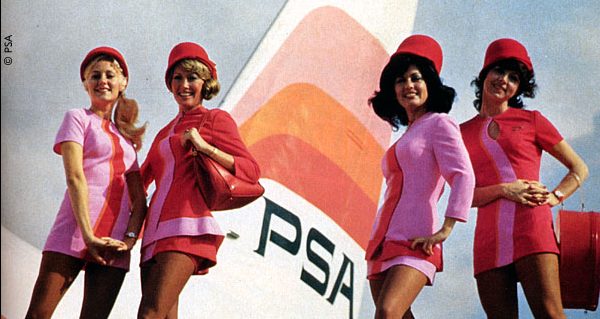
Six crazy rules for women in the workplace, past and present
From dress codes to rules around working while pregnant, women have faced all sorts of restrictions on what they can and can't do at the office for decades and across pretty much all sectors.
Some of those rules might be long gone (chatty secretaries in Waco, Texas, we hear ya). But not all of them. We run down six of the craziest, past and present.
1800s-1970s: Got married? Time to go

A ban on hiring married women or forcing them to quit after the wedding – known as a “marriage bar” – was commonplace for jobs in public service in the UK, Canada, Australia, Ireland and the Netherlands from the late 19th Century. That’s anything from teachers and nurses to the army and public broadcasting. It was repealed in the UK in 1935 – but it wasn’t scrapped in Ireland until 1973. Famous Australian Radio-physicist Ruby Payne-Scott hid her marriage from her employers until she was found out in 1950.
Why? Other than the fact they had more important things to be doing, like having babies, supporters of the ban believed that married women took employment from those who needed it more – men and single women. Once married, women were expected to be supported by their husbands.
1960s: Secretaries in Waco, Texas - try not to talk about yourself

To be a good secretary in 1960s Waco, Texas you had to follow a lot of rules. Making sure not to talk about yourself was one of them – along with controlling your impulse to meddle in other people’s business or make sarcastic comments. If you could master all of these, you would be well on your way to becoming a secretary, who needs 100 words-per-minute.
1960s: Female cabin crew - passed your best at 32
Female flight attendants in the US had to fit some very specific criteria. Just look at this advert for Eastern Airlines in 1966: "A high school graduate, single (widows and divorcees with no children considered), 20 years of age (girls 19 1/2 may apply for future consideration). 5'2" but no more than 5'9", weight 105 to 135 in proportion to height and have at least 20/40 vision without glasses."
Rules varied at different airlines - but it was common to only hire “slender, well proportioned” women between 5’2” and 5’9” inches tall. United Airlines required women to retire at age 32 or, if you were lucky, 35. Airline bosses believed that the image of the youthful, single stewardess was central to their success.
Some airlines still have strict requirements for staff – but most apply to men and women. Makeup is an exception. For example, United Airlines bans makeup for male flight attendants but women must wear lipstick or lipgloss.
1970s - present: Pregnant? It's complicated

In the US, school teachers were forced to take unpaid maternity leave when they were four to six months pregnant until well after the birth. Fans of the policy argued that the pregnancy might distract students or the woman might not be able to concentrate.
In 1971, Susan Cohen, Jo Ann LaFleur, and Ann Nelson filed lawsuits against the schools they taught in. By 1974, in the Supreme Court declared mandatory unpaid leave policies unconstitutional – a big step forward for women’s rights at work. Pregnant women must be allowed to work, as long as they can perform their jobs.
But the US still lags behind the rest of the world - it is one of only four countries that does not guarantee paid maternity leave. Swaziland, Lesotho and Papua New Guinea are the other three.
Forever - present day: Dress like a woman

Last year, Nicola Thorp was sent home from her job as a receptionist in London for refusing to wear high heels. She started a petition in protest. Over 100,000 people signed it, so the government had to respond – MPs launched an enquiry and said they were “shocked” by what they found.
It’s everywhere. Until 1993, female politicians were not allowed to wear trousers and pantsuits on the floor of the US Senate. In February, Donald Trump caused (yet another) Twitter storm when a report exposed that he requires all female staff to “dress like women”. A ban on female lawmakers in Turkey wearing trousers in the assembly was only lifted in 2013. And, to go back to the air stewards, British Airways only allowed women to wear trousers last year – to stop women having to “shiver in the cold, wet and snow of wintery climates”. Yikes.
Right now: No women mining students in China
Only men are allowed to study mining engineering at China Mining and Technology University – a course that guarantees you a job after graduation. Reasons for this rule: women would not be able to carry heavy the machinery or escape as quickly in an emergency, apparently. A professor at the University told the BBC, "China's labor law suggests mining work is unsuitable for women, so we ask women to refrain from applying to our major."




